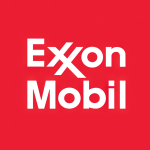Welcome to our dedicated page for Exxon Mobil news (Ticker: XOM), a resource for investors and traders seeking the latest updates and insights on Exxon Mobil stock.
Exxon Mobil Corporation (NYSE: XOM) generates frequent news and disclosures as one of the largest publicly traded international energy and petrochemical companies. Its updates cover developments across its Upstream, Product Solutions and Low Carbon Solutions businesses, as well as capital markets activity and corporate governance changes. This news page aggregates those announcements so readers can review company‑issued information in one place.
Investors and followers of XOM can find coverage of quarterly earnings releases, where ExxonMobil reports segment‑level earnings, production volumes, refining throughput, product sales, cash flow from operations, and capital expenditures. The company also issues news and related Form 8‑K filings when it provides earnings considerations documents, updates its Corporate Plan through 2030, or schedules upcoming financial results releases and conference calls.
Beyond financial results, ExxonMobil news includes items on its Corporate Plan outlook, structural cost savings, and the role of advantaged assets in the Permian Basin, Guyana, and LNG within its Upstream segment. In Product Solutions, news highlights record refinery throughput, high‑value product sales in Chemical and Specialty Products, and acquisitions that support entry into areas such as battery anode materials. Low Carbon Solutions‑related news covers carbon capture and storage projects, contracts for CO₂ volumes, and CCS‑enabled low‑carbon data center concepts.
Governance and leadership updates are also reported, such as the election of new directors to the board, committee assignments, and changes in senior executive roles disclosed via 8‑K filings. For anyone tracking XOM stock, this page offers a central view of ExxonMobil’s official press releases and regulatory news, helping users follow how the company describes its performance, strategic priorities, and lower‑emissions initiatives over time.
ExxonMobil aims to achieve net-zero greenhouse gas emissions for operated assets in the U.S. Permian Basin by 2030, part of a broader initiative to reduce upstream emissions intensity by 40-50% from 2016 levels. Key strategies include eliminating routine flaring by the end of 2022 and electrifying operations using low-carbon power sources. The company anticipates a 75% reduction in flaring volumes by year-end 2021 compared to 2019. This aligns with global methane reduction goals, supported by investments in technology and independent validation for cleaner natural gas production.
ExxonMobil (NYSE: XOM) has announced plans to invest
TechnipFMC (NYSE: FTI) has secured a significant contract from Exxon Mobil Corporation (NYSE: XOM) for the Yellowtail development project. The contract entails supplying a subsea production system, with a project value classified as large (between $500 million and $1 billion). The project includes delivering 51 enhanced vertical deepwater trees, 12 manifolds, and associated tooling and equipment. TechnipFMC plans to enhance local hiring in Guyana, reaffirming its commitment to the region's workforce and capabilities.
Imperial Oil Limited (NYSE: IMO) announced its plan to accelerate share buybacks under its normal course issuer bid (NCIB). The company can repurchase up to 35,583,671 shares by January 2022, having already bought 11,956,028 shares as of October 2021. With an average purchase price of $42.70, the accelerated plan could return over $1 billion to shareholders. The company emphasizes its commitment to shareholder returns through dividends and share repurchases, evaluating further options for cash return.
ExxonMobil has signed a Memorandum of Understanding with Pertamina to explore low-carbon technologies in Indonesia. This collaboration focuses on large-scale carbon capture, utilization, and storage (CCUS), as well as low-carbon hydrogen. The MoU aims to identify suitable CO2 storage locations and enhance Indonesia's net-zero goals. This partnership comes amid discussions on climate policies at COP 26, highlighting ExxonMobil's commitment to reducing emissions through innovative solutions.
Imperial Oil Limited (TSE: IMO, NYSE American: IMO) has declared a quarterly dividend of 27 cents per share, payable on January 1, 2022, to shareholders of record on December 3, 2021. This dividend remains unchanged from the third quarter of 2021. With over a century of operation, Imperial has consistently paid dividends and has increased its annual payment for 27 consecutive years. As Canada's largest petroleum refiner, Imperial is committed to responsible energy development and maintaining high standards across its operations.
Imperial Oil Limited reported a net income of $908 million for Q3 2021, significantly up from $3 million in Q3 2020. The company achieved cash flow from operating activities of $1,947 million, driven by increased production and strong commodity prices. With average production of 435,000 barrels per day, this marks the highest third-quarter output in over 30 years. Shareholders benefited from over $500 million returned through dividends and share repurchases. The company also announced plans for a renewable diesel complex, enhancing its commitment to lower-carbon fuels.
Exxon Mobil Corporation reported a Q3 2021 net income of $6.8 billion, a significant increase from a $680 million loss in Q3 2020. The earnings per share stood at $1.57. Cash flow from operations totaled $12.1 billion, supporting capital investments and a dividend increase to $0.88 per share. Anticipated annual capital investments are projected between $20 billion and $25 billion, with a fourfold increase in low-carbon spending. The company aims to execute a $10 billion share repurchase program starting in 2022, signaling strong financial management and a commitment to shareholder returns.
The Board of Directors of Exxon Mobil Corporation has declared a cash dividend of
Exxon Mobil Corporation (NYSE:XOM) will announce its third quarter 2021 financial results on October 29, 2021, at 6:30 a.m. CT. A press release and supplementary financial data will be accessible at www.exxonmobil.com. Following the release, a conference call led by CEO Darren Woods, CFO Kathryn Mikells, and VP Stephen Littleton will review the results at 8:30 a.m. CT. Interested parties can join via webcast or by phone.

